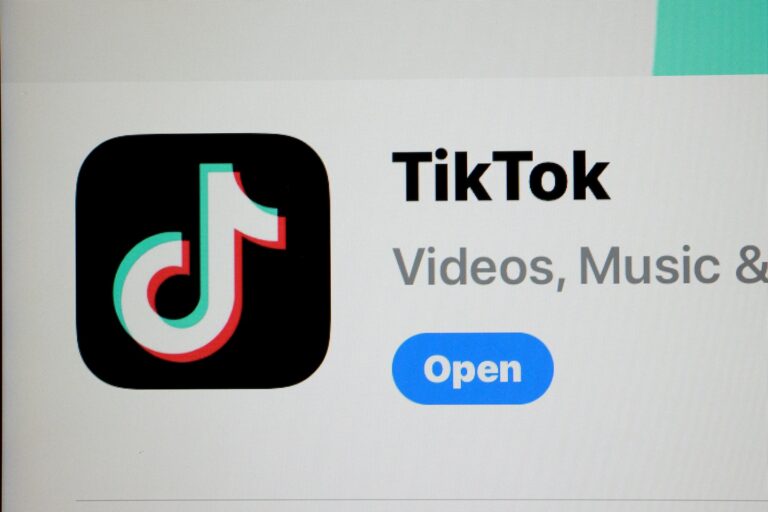New documents filed late Friday in a federal appeals court in Washington allege that ByteDance’s internal workplace and communications program, Lark, was used to link employees in China and the United States and transmit data of U.S. users, including personally identifiable information.
Department of Justice officials said the search tools within Lark would have allowed ByteDance and TikTok employees to “collect large amounts of user information based on users’ content and expression, including their views on gun control, abortion and religion.” The filing did not say whether or how the data was used.
President Biden signed legislation in April requiring ByteDance to sell TikTok to a company outside of China or face a ban in the U.S. TikTok has 170 million users in the U.S. The documents filed Friday marked the government’s first major response to a lawsuit brought by TikTok and ByteDance.
TikTok spokesman Alex Haurek said early Saturday that the company is “confident that we will prevail in court.”
In a statement posted on X, TikTok added that banning the app violates users’ First Amendment rights: “This brief does not change the fact that the Constitution is on our side. Banning TikTok would silence the voices of 170 million Americans and violate the First Amendment.”
Social media companies like Meta’s Facebook also ask users to share their religion and other personal information, but the Justice Department argues that TikTok’s access to sensitive information could pose geopolitical risks by allowing the Chinese government to demand that ByteDance share U.S. users’ data.
The department said TikTok’s algorithms that determine what videos users watch “can be manually manipulated, and its location in China could give the Chinese government covert control over the algorithms to covertly shape the content U.S. users receive and use them for its own nefarious purposes.”
“The serious national security threat posed by TikTok is real, demonstrated by the public record and confirmed by classified information provided by the intelligence communities,” the government argued in a separate filing.
“TikTok provides the Chinese government with the means to undermine U.S. national security in two key ways: through data collection and covert content manipulation,” it added.
The documents filed late Friday were heavily redacted, and Justice Department officials said they planned to submit unedited versions of legal briefs containing classified information to the court. The briefs will be available to judges but not to businesses or the public.
China has said it will block the sale of TikTok’s algorithm, and TikTok and ByteDance’s lawsuit argues that the challenge of replacing core parts of the app’s structure by the January deadline is “wholly unfeasible.”
In May, eight TikTok creators filed a lawsuit against the US government alleging that the law violates their First Amendment rights. TikTok, which is funding the litigation, has consolidated the two lawsuits into a single lawsuit.
The ministry responded that even if TikTok was removed, users would still be able to post and view the same content on other social media platforms.
“Petitioners’ preference for TikTok over other platforms does not create a constitutional right to TikTok,” the lawsuit said. “And that preference does not outweigh the national security interests underpinning the law.”
In response to TikTok’s argument that the US had not presented evidence to support its claims of Chinese government influence, the Justice Department said in the report that “the United States need not wait until a foreign adversary takes concrete harmful actions before responding to such threats.”
“Congress may act even if all of the threatened harms have not yet been widely realized or detected,” the officials wrote.
Justice Department officials also opposed TikTok’s First Amendment defense, arguing that any harm the law would cause to users’ free speech would be “incidental.”
“Any adverse impact on American expression would be indirect and fully justified,” the official said, adding later that “TikTok creators have no First Amendment right on TikTok.”

